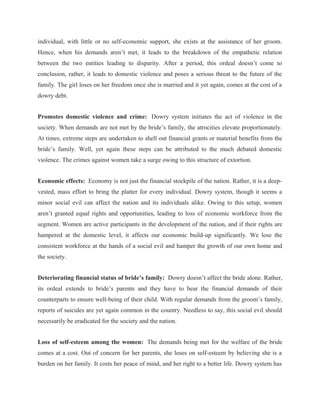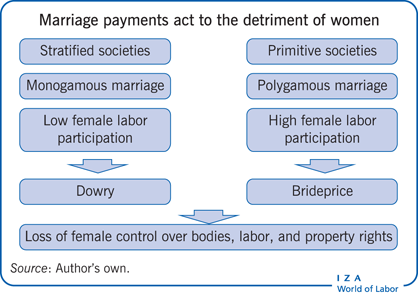Dowry is a traditional practice that involves the transfer of money, goods, or property from the bride's family to the groom or his family at the time of a marriage. The practice of dowry is prevalent in many cultures and is often seen as a way for the bride's family to demonstrate their wealth and status, and to secure the financial well-being of the bride in her new household. However, dowry has also been the subject of much debate and controversy, with many arguing that it reinforces gender inequality and can lead to exploitation and abuse of women.
On one side of the debate, proponents of dowry argue that it is a long-standing tradition that is an important part of many cultures and should be respected. They argue that dowry is a way for the bride's family to show their appreciation for the groom and his family, and to express their support for the new couple. Dowry is also seen as a way for the bride's family to ensure that the bride will be well taken care of in her new household, and that she will have the financial resources she needs to start her new life.
However, critics of dowry argue that it reinforces gender inequality and can lead to the exploitation and abuse of women. In many cases, the dowry becomes a source of conflict between the bride's family and the groom's family, with the groom's family often demanding more and more money or goods as the price of the marriage. In some cases, the groom's family may even threaten to call off the marriage if the dowry is not paid in full. This can put enormous pressure on the bride's family, who may feel obligated to sell their assets or take out loans in order to meet these demands.
Furthermore, dowry is often seen as a form of property exchange, with the bride being treated as a commodity to be bought and sold. This reinforces the idea that women are inferior to men and that their value is tied to their ability to bring wealth and status to their families and husbands. This can lead to a culture of male entitlement and the objectification of women.
In many countries, dowry is illegal or heavily regulated in an effort to combat these negative effects. In India, for example, the Dowry Prohibition Act makes it illegal to demand or give a dowry, and provides for fines and imprisonment for those who violate the law. In other countries, dowry is not illegal but is discouraged through education and social campaigns.
In conclusion, the debate over dowry is a complex and nuanced one, with valid arguments on both sides. While dowry can serve as a way for families to express their support and love for their children and to ensure their financial well-being, it can also reinforce gender inequality and lead to exploitation and abuse. It is important to carefully consider the potential consequences of this practice and to work towards a more equitable and respectful society for all.









